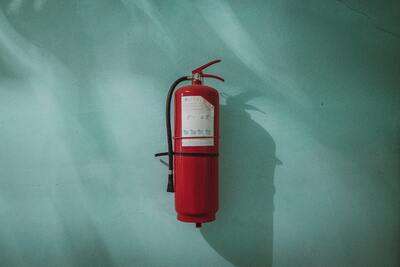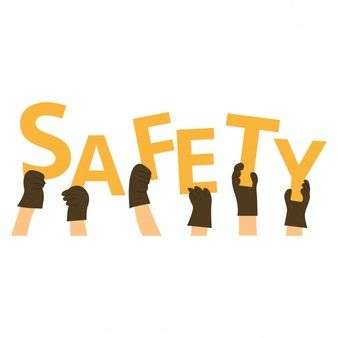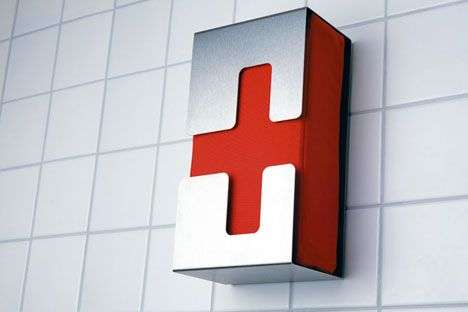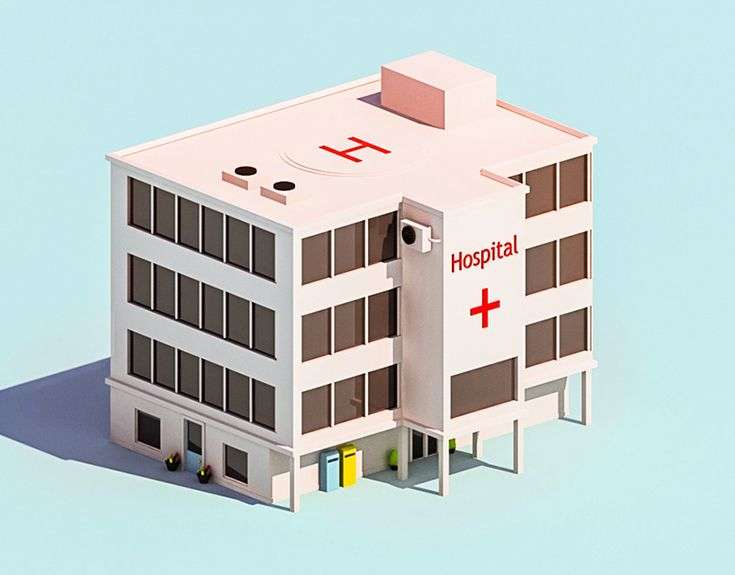
6 Aspects to incorporate in hospital design
February 27, 2023
How to improve patient experience in your Hospital?
March 16, 2023A hospital is a haven of healing. As a healthcare entrepreneur, it is your duty to assure that your hospital nurtures the safety of the patients who come there with the hope of relief and cure. As a healthcare professional, we are sure that you took a stride in this segment because you have always had a desire to help people. You are dedicated to your patients’ welfare at all time and hence “patient safety” at your hospital is your priority.
People generally think that hospitals are among the safest sanctuaries in the world, however if you let your guard down, even for a second, lurking dangers may loom large and lead to a catastrophe. Patient safety is not a one-time milestone that can be fulfilled by one individual working alone, it is a goal that has to be attained through constant diligence, adherence to safety protocol, periodic monitoring and teamwork. The importance of patient safety has been understood globally and December 9 is celebrated as Patient safety Day throughout the world.
4 things that can help you improve patient safety in your hospital
1. Fire safety
Fire is an all-consuming threat. Hospitals house highly combustible material like oxygen cylinders and alcohol. So, the danger of a fire breaking out is all-pervading. People who come to hospitals are often bed-ridden or weak and unable to run and escape if a fire breaks out. Hence, special precautions have to be taken to prevent fires in a hospital
Ensure that your hospital is compliant to the code specified by the NBC National Building code which puts hospitals under the CI category; i.e., buildings which require special infrastructural arrangements for fire safety. Strictly adhere to these guidelines. Some points to note
- Availability of two uncluttered staircases besides elevators
- Refuge areas and open spaces and fire exits in the design.
- Fire safety equipment like fire extinguishers and water hoses on every floor
- Smoke monitoring devices like smoke alarms in every room
- Posters about fire prevention in prominent locations on every floor.
- Display of layout maps and direction signs
- Display of “No smoking” signs prominently.
- Storage of oxygen cylinders and flammable liquids in cordoned-off areas.
- Periodic checks of electrical equipment and wires
- Training of staff on use of fire control equipment and evacuation protocol
- Use of fire-resistant materials on walls, ceilings and floors.
- Conduction of periodic fire safety audit by external experts.

2. Fall prevention
The patients who visit your hospital are sometimes weak, incapacitated or movement-restricted. You have to ensure that the interiors of your hospital do not pose the risk of falls for these already debilitated people. Some aspects to ensure fall prevention
- Incorporate a hospital plan that is focused on patient safety along with operational efficiency.
- Ensure that the corridors and passages are uncluttered.
- Put in handrails and bannisters that can lend support
- Ensure that there is a wheelchair ramp and elevators
- Use fall-resistant anti-slip flooring
- Ensure that the floor is clean and dry.
3. Harness the power of technology
Healthcare professionals have to take care of multiple patients during their shifts. Each patient will be having a different condition and different management plan. The medical support team is often short-staffed or overburdened with work. They have to frequently work long hours without breaks. Fatigue and exhaustion can lead to human errors or accidents which can severely compromise patient safety. Be sure to avoid this by going digital wherever possible…make use of a reliable Hospital information system to store, share and update patient data accurately with speed and efficiency. A digitalized smart hospital is a safe hospital because digitalization of records reduces risks of human error. Illegible prescriptions can be replaced by readable printed ones leading to convenience and safety.
Technology can be used as a monitoring tool to alert the nurses of any change in wellness parameters. E.g. Use of portable monitors, wearable devices, bed alarms to name a few.

4. Prevention of Infection
Hospitals can be a hub of infections. The simple act of sanitization and disinfection can go a long way in shielding patients from infections. The spread of infections in a hospital can be curbed with the following mandatory procedures
- Use of HEPA filtration devices to kill air-borne micro-organisms.
- Utilization UV lamps in operating rooms.
- Effective and frequent sterilization of medical equipment.
- Use of frequent disinfection processes to prevent the build-up of germs on surfaces
- Use of germ-resistant material on table tops and floors to prevent accumulation of pathogens.
- Compulsory practice of hand hygiene procedures.
- Prominent display of sanitizers on every floor to encourage constant hand washing.
- Sensor-operated doors to eliminate the need for handles to reduce risks of contact.
- Spacious waiting rooms where social distancing can be followed.
- Availability of alcohol-based hand rub and gloves at every bedside to prevent cross-contamination.

Patient safety in simple words is all that can be done to safeguard your patients’ welfare by minimizing human errors, preventing accidents, infections and fires. Every hospital should have a sturdy safety protocol in place and every member of the medical team should stringently adhere to these guidelines. Every time a patient undergoes a procedure or a treatment, a pre-procedure verification protocol should be initiated to check if all the safety boxes have been ticked.
Patient safety should not just be your aim, it should be ingrained in your culture. If you need any help in setting the safety protocol of your hospital, be sure to contact Hospertz, a leading hospital consultancy firm of India.
Blog has been written by Dr. Vishal Jadhav, a veteran in the field of hospital consultancy with a rich experience of more than 20 years and founder of the Healthcare Consultancy Firm, Hospertz.
Dr. Vishal Jadhav, Director
Linkedin: Dr Vishal Jadhav
hospertz@gmail.com
+91 9867712705/ 9820833149



